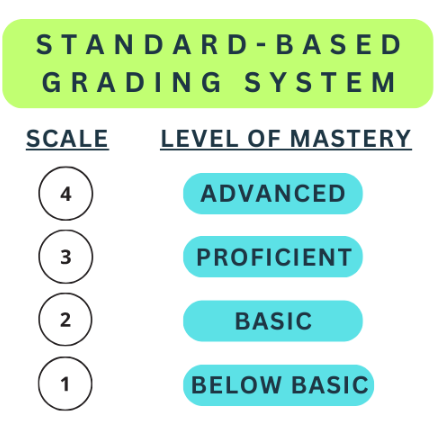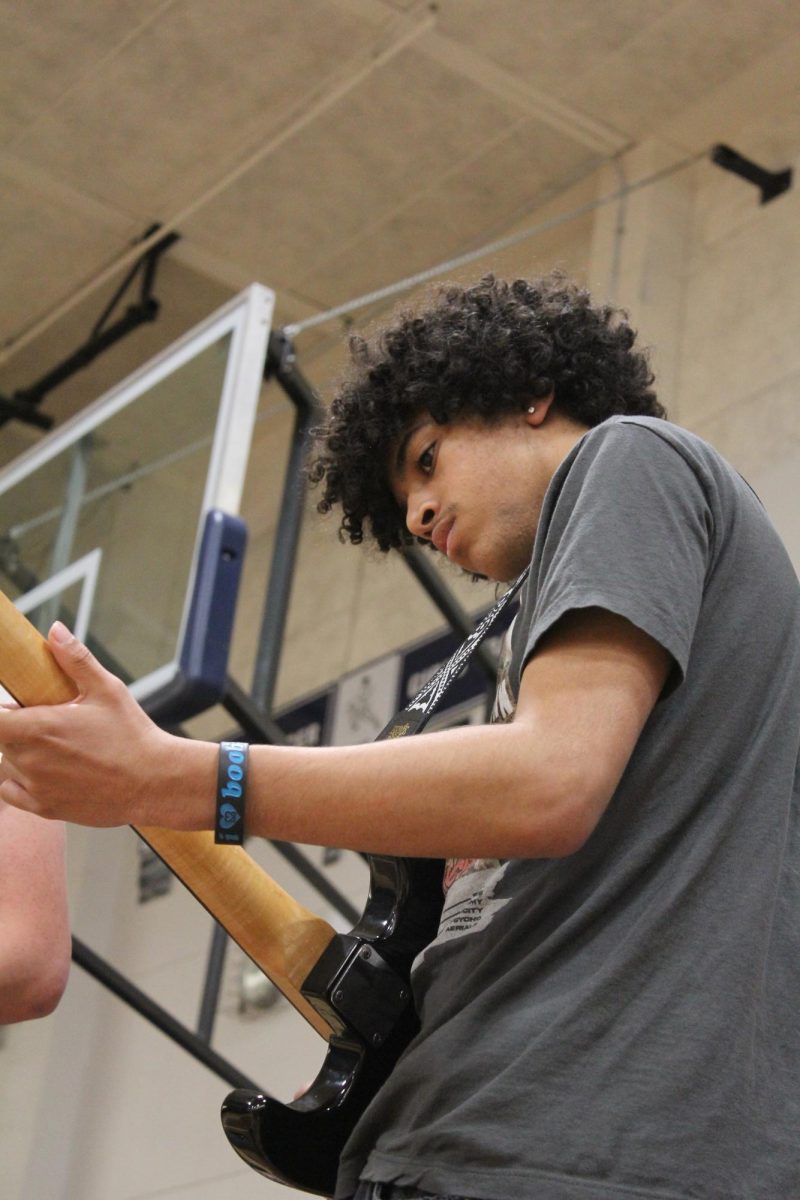
The rise of standards-based grading has caused conflicting opinions all over America, and OHS is no exception. Rising calls for equity and skill-based evaluation have been met with heated student opposition.
“Standards-based…[is] like [if] points-based grading put on a special costume and pretended to be standards-based grading,” remarked senior Sujith Kadagandla. “The only difference between that and points-based grading is that there are [fewer] points in the grade book.”
Eric Jacobs, OHS English Department Head, believes standards-based grading is a way to holistically assess students’ skills. Compared to points-based grading systems, Jacobs has “found that [standards-based grading] is… three times more accurate.” By using rubrics that clearly outline expectations, Jacobs hypothesizes that standards-based grading keeps both students and teachers accountable.
Standards-based grading is implemented differently depending on each teacher’s preference. Kadagandla points out that in certain classes, a 3 “meets expectations,” similar to an A-Level, while a 4 would correspond to an “exceeding expectations.”
However, Jacobs takes a different approach. His system starts with 4 levels that correspond with the traditional letter grading system. “A 4 should be what the A-Level is on an assignment,” Jacobs notes. “There are some strong [A’s] 4’s and weaker 4’s, but if you meet that bar, the system won’t score students against each other what that does is it’s not scoring students against each other…if I’m going off the rubric.”
“There are some strong [A’s] 4’s and weaker 4’s, but if you meet that bar, the system won’t score students against each other what that does is it’s not scoring students against each other…if I’m going off the rubric.”
OHS math teacher Claire Bach uses the traditional grading system since “it’s something [students are] familiar with…helps with clarity…[which] helps students understand expectations”. She believes that this system allows students to focus on the assignment requirements at hand rather than struggling with an unfamiliar grading system.
It’s important not only to consider the student’s perspective on this grading system. Due to the unfamiliarity with this grading system, “parents are getting mad at the kid when they get a 3 on something when 3 means proficient,” Bach mentions.
Standards-based grading is like “making a rule for the exceptions instead of making the exceptions to the rule” remarks Bach. Although standards-based grading is designed to minimize failure, it increases the difficulty of achieving high grades.
Additionally, standards-based grading may not be the best grading system for every subject, Bach points out. For example, straightforward math problems (like finding the sine of 30 degrees), don’t allow for exceeding expectations. Having taught art, social studies, and math, Bach believes subjective classes (i.e., art and English) work well when graded in a standards-based manner.
Bach also sympathizes with students in standards-based classes receiving several rubrics for projects, getting overwhelmed with the amount of skills they are graded on. “When you get five different rubrics, you get confused on which one to look at with your specific project…it creates this big web of chaos,” she adds.
According to Kadagantala, each point counts more with standards-based grading. “If you are having a bad day… one assignment can tank your grade.” With how standards-based grading works, students often struggle to earn 4s, which can “artificially [increase] the difficulty of a class when there’s no need to.”
Kadagandla thinks teachers should know about how students feel. “It’s not clear that they understand why we don’t like standards-based grading…I do think that teachers need to listen more.” Bach agrees teachers are “making these arguments from an adult perspective, forgetting to bring in the student perspective most of the time”.
However, the grading system can’t be blamed entirely for students’ abilities to succeed in a class. Bach also points out there may be other factors other than the grading system that could affect a student’s ability to be successful in class. Bach elaborated, “[Maybe] they don’t have parents at home that can help them out, or maybe their home situation is more chaotic than what the traditional life looks like.’
In the end, there is never just one grading system that’s a one-size-fits-all. “I think… there’s a lot to [grading practices] and there’s things that are built in that just require time, patience, and training,” Jacobs stated. In the meantime, students and teachers can only try their best to work with these various grading systems.




































Christine Zhang – Apr 24, 2024 at 9:59 am
This is really interesting!